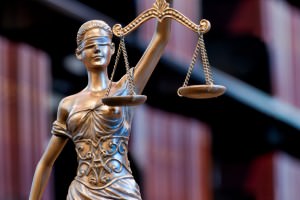FBI Entrapment
 While the courts have generally held the Justice Department can use trickery and/or deception orchestrating FBI undercover operations, often these investigations are met with allegations suggesting FBI Entrapment. Because FBI undercover operations involve complicated scenarios—requiring advanced planning and special funding—the Justice Department mandates undercover investigations must undergo a special rigorous review process mindful about FBI Entrapment allegations.
While the courts have generally held the Justice Department can use trickery and/or deception orchestrating FBI undercover operations, often these investigations are met with allegations suggesting FBI Entrapment. Because FBI undercover operations involve complicated scenarios—requiring advanced planning and special funding—the Justice Department mandates undercover investigations must undergo a special rigorous review process mindful about FBI Entrapment allegations.
And since undercover operations invariably use Confidential Informants, Cooperating Witnesses, and/or Government agents acting in an undercover capacity, FBI Entrapment and other legal defenses, including outrageous government conduct are defenses prosecutors can expect criminal defense attorneys will use when they file criminal charges supported by an undercover operation.
But as one 56-year-old Nebraska farmer discovered with no known criminal record; once charged with a felony like child pornography, legal defenses claiming outrageous government conduct and/or entrapment are not arguments readily won–despite evidence suggesting the defendant was “induced” to purchase pornography using unsolicited mail solicitations. Not dissuaded by a lower court’s ruling, however, refusing to believe he did anything wrong, the Nebraska farmer appealed his criminal conviction, and in a slim 5-4 majority opinion, the Supreme Court agreed with his entrapment claim, reversing the case [see Jacobson v. United States, 112 Supreme Court 1535 and 1540 (1992)].
Reviewing the High Court’s decision, experts state the Nine Justices followed a traditional entrapment analysis focusing on two basic questions. Namely—did the Government induce the defendant to commit the crime? And second—assuming the Government improperly induced the defendant to commit the crime—was the Nebraska farmer nevertheless predisposed to commit the crime? Because the Government did not dispute “inducement,” the issue before the Court only concerned whether the defendant was “predisposed” to commit the crime—ordering the illegal pornography before the Government intervened. Based on the Court’s review, the Justices concluded the Government “failed” to prove the farmer was “predisposed” to commit the crime–reversing his conviction on the entrapment claim.
In order to be successful with an FBI Entrapment defense, experts explain a defendant must show “inducement” before the burden of proof shifts to the Government. If a defendant can establish the Government induced the crime in an FBI Entrapment claim, the courts require the Government then must prove “predisposition.” In the event a defendant cannot establish/prove inducement, the courts have historically ruled an FBI Entrapment defense will fail. While legal scholars consider inducement and predisposition closely related, since the same evidence can be used to establish both elements; in general, “inducement” concerns the Government’s conduct, while “predisposition” describes the defendant’s actions and statements.
______________________________________________
Directory members can be extremely helpful to anyone seeking information and/or requiring a professional opinion concerning FBI Entrapment. Looking for an FBI Entrapment expert—visitors can use the website’s search feature, entering the appropriate skill and geographical area of preference, to locate a retired FBI agent and thereafter make contact with an FBI specialist, using the information provided.
______________________________________________
Retired FBI Agents and Analysts interested in securing a Directory listing and/or a personal email address need only submit a brief online application to join the website.
[NOTE: Information contained herein was summarized from an article written by Thomas V. Kukura titled, “Undercover Investigations and the Entrapment Defense,” that appeared in the April 1993 FBI Bulletin].
